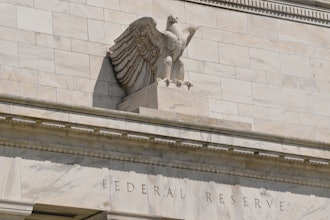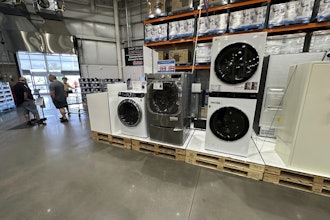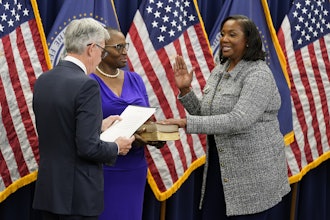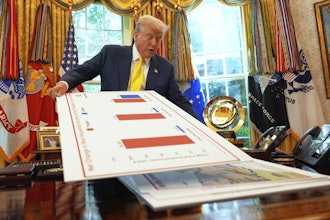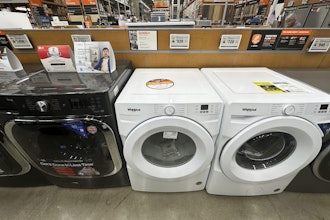
Just a few short months ago, the economy was booming. Distributors, like many small businesses, were basking in the glow of a strong economy and an even brighter future. In seemingly the blink of an eye everything changed when the COVID-19 virus hit. All companies were impacted to some degree, but smaller businesses which are often described as the “engine that drives the economy,” were particularly devastated.
There are myriad reasons for that description. According to the Small Business Administration, smaller businesses are responsible for most job creations in the U.S., and account for half of all private-sector jobs.
 Jack Keough
Jack Keough
Meanwhile, banks were one group that were winners, according to a recent report from NPR. The news group reported that banks handling the government's $349 billion loan program for small businesses made more than $10 billion in fees — even as tens of thousands of small businesses were shut out of the program, according to an analysis of financial records obtained by NPR.
For every transaction made, banks took in 1 to 5 percent in fees, depending on the amount of the loan, according to government figures. Loans worth less than $350,000 brought in 5% in fees while loans worth anywhere from $2 million to $10 million brought in 1% in fees.
Banks argue that those fees were justified for the amount of time and costs associated with processing those loans.
It is readily apparent that many small businesses are continuing to reel under the effects of the COVID-19 and the subsequent shutdown of the nation’s economy.
One such business is Leff Electric, a distributor in Ohio. Leff said it suspended its regular business operations on April 10 because of the COVID-19 crisis and resulting restrictions placed on Ohio businesses.
In a notice placed on its website, Leff said it has stopped payments to its vendors and was not placing new orders from suppliers or receiving any new deliveries of products.
Leff, which has been in business since 1921, has seven locations in northern Ohio and and serves the construction, industrial, commercial, institutional, and government markets.
Leff is continuing to provide limited support to certain customers through continued access to customer-owned goods and other proprietary products located at its warehouse and branches. Leff has a small group of employees monitoring the phones and e-mail to provide such assistance.
This could be the first of many companies that may not recover from the pandemic.
While the pandemic might be the immediate cause for many distributors to struggle to stay in business, it should also put the spotlight on the many onerous regulations and governmental rules that have strangled many companies over the years. I still remember visiting one smaller distributor who had two employees doing nothing but filling out paperwork to comply with federal and state regulations.
That company is not alone. One recent study revealed that one-third of small businesses report it spends over 80 hours per year on federal taxes, and nearly half of these companies pay at least $5,000 a year to accountants or other tax practitioners.
It would be nice if more elected officials, such as congressmen and senators, really took the time to see the problems small business owners face. That would be an eye-opening experience as one former senator found out for himself when he opened his own small business
The senator was the late George McGovern, who detailed the problems he had in running a business after he left government.
McGovern had a long political career, including two terms in the House of Representatives, three terms as senator for South Dakota, and three runs for president — two runs in Democratic primaries in 1968 and 1984 sandwiching his infamous 1972 campaign.
After his final campaign McGovern bought the Stratford Inn in Connecticut in late 1988. The inn had 150 rooms and also a restaurant and facilities for hosting large conferences. It was McGovern’s first business experience after decades in politics, academia, and the military.
He later described the negative impact government regulations had on his ability to operate his small business. Government regulations, he said, looked different when he was the business owner compared to when he was the legislator.
“The concept that most often eludes legislators,” he wrote in an op-ed piece in the Wall Street Journal in 1992 is: ‘“Can we make consumers pay the higher prices for the increased operating costs that accompany public regulations and government reporting requirements with reams of red tape?’”
“In retrospect, I wish I had known more about the hazards and difficulties of such a business,” McGovern concluded. “I also wish that during the years I was in public office, I had had this firsthand experience about the difficulties business people face every day. That knowledge would have made me a better U.S. senator and a more understanding presidential contender.” The inn, by the way, eventually went bankrupt.
Maybe more members of Congress should take the time to understand how some legislation negatively impacts small businesses. They might learn a lot.










